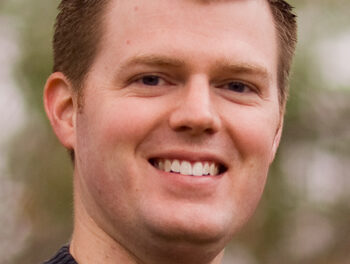An ambitious program featuring music spanning more than 400 years provided immense variety as The Bel Canto Company kicked off its 29th season in Christ United Methodist Church. The theme “Great Day!” intended to “commemorate great events in our lives: Love, Marriage, Worship, Birth and Death.”
The evening began with two unaccompanied works in Latin. “Haec Dies” (“This is the day”) by the Renaissance composer William Byrd contains long flowing lines with contrasting passages of perky dance rhythms. Both characters showcase BCC’s considerable vocal flexibility and stylistic understanding.
Music Director Welborn E. Young held his baton aloft at the conclusion of this piece so that there was no break in mood as the 30+ ensemble gently moved into “Lucis Creator Optime” (“Best Creator Light”) by Lithuanian composer Vytautas Miskinis (born 1954). This a cappella gem features close harmonies approaching clusters and treacherous-to-tune unisons; the BCC’s slightly straight-tone singing brought focus and good intonation. Young’s fluid conducting style helped shape individual lines in this hauntingly beautiful work—certainly one of the highpoints of the evening.
“I Was Glad” by Charles Hubert Hastings Parry was ably directed by BCC member and assistant conductor Liz Doebler and featured lots of organ from Susan Bates. This is a festive piece, sung at Royal weddings, but unfortunately the organ (sometimes providing Mahleresque climaxes) overshadowed the chorus. Most of the other texts were provided in the program, a pity they weren’t for this piece as the words were difficult to hear.
Young returned to the podium for Bach’s “Lobet den Herrn” (“Praise the Lord”). This mostly upbeat motet with a more sustained middle section was sung in a “light and detached” manner (as the conductor told the audience). Bates accompanied on the portative organ; cellist Leah Gibson provided a solid underpinning.
A decided change of character took place in the somber “A Soldier, and the One I Love” by Dan Davison (b. 1956) and Kentucky shape-note song Idumea (“And am I born to die?”) arranged by Richard Bjella. The former made good use of five soloists: Laura Worst, Dianne Black, Jayme Updike, Tandy Brown, and Rich Lowder. A snare drum, played by Christopher Dial, added a military feel as the men and women traded verses. The entire ensemble sang the final pleading verse.
Idumea featured Tandy Brown as soloist and violinists Ryan and Stephanie Silvestri, who helped bring out the folk-nature of the tune. Again men and women often juxtaposed each other utilizing the different timbres for expressive purposes. The great violin playing (sometimes fiddling, sometimes a drone) evoked the poignancy of the text perfectly.
The second half of the concert began with Five Hebrew Love Songs, by Eric Whitacre (b.1970); his wife penned the poems before they were married. This is a ravishing work, aided by terrific violin work from Stephanie Silvestri and evocative piano playing by BCC accompanist Karen Beres. The five movements explore several different styles and timbres, from the female voices in the opening “Temuná” to the sectional and lively “Kalá kallá,” which contrasted unison singing, male chorus, and dance-like passages rhythms emphasized by a tambourine.
One of Aaron Copland’s perennial favorites, “Zion’s Walls,” was sturdily sung and strongly accompanied by Beres. The intense a cappella”Over Havet” (“Across the sea”) by Dan Forrest (b.1978) chronicles an immigrant’s thoughts and feelings as he makes his way to the US and his life after arrival. Soloist Karen Messina provided a good timbral contrast to the overall choral sound.
“Come Thou Fount” by Mack Wilberg (b.1955), returned Bates to the organ, although several verses were unaccompanied. The evening closed with the spiritual “Great Day” arranged by Hall Johnson (1888-1970), with Wendell C. Putney and Maya Clausen serving as the soloists.
If memory serves, the BCC is a bit larger this year, which provides for a bit bigger sound. The impressive evening of music making certainly demonstrates Bel Canto’s artistry and ability to tackle divergent musical styles. To be sure, sometimes ensemble wasn’t perfect, sometimes intonation sagged a bit, and diction could have been better a couple of places. But the overall quality of literature and singing is unmatched in this area of the state. Very impressive.
Note: This program will be repeated 10/3 in the same venue. For details, see the sidebar.












